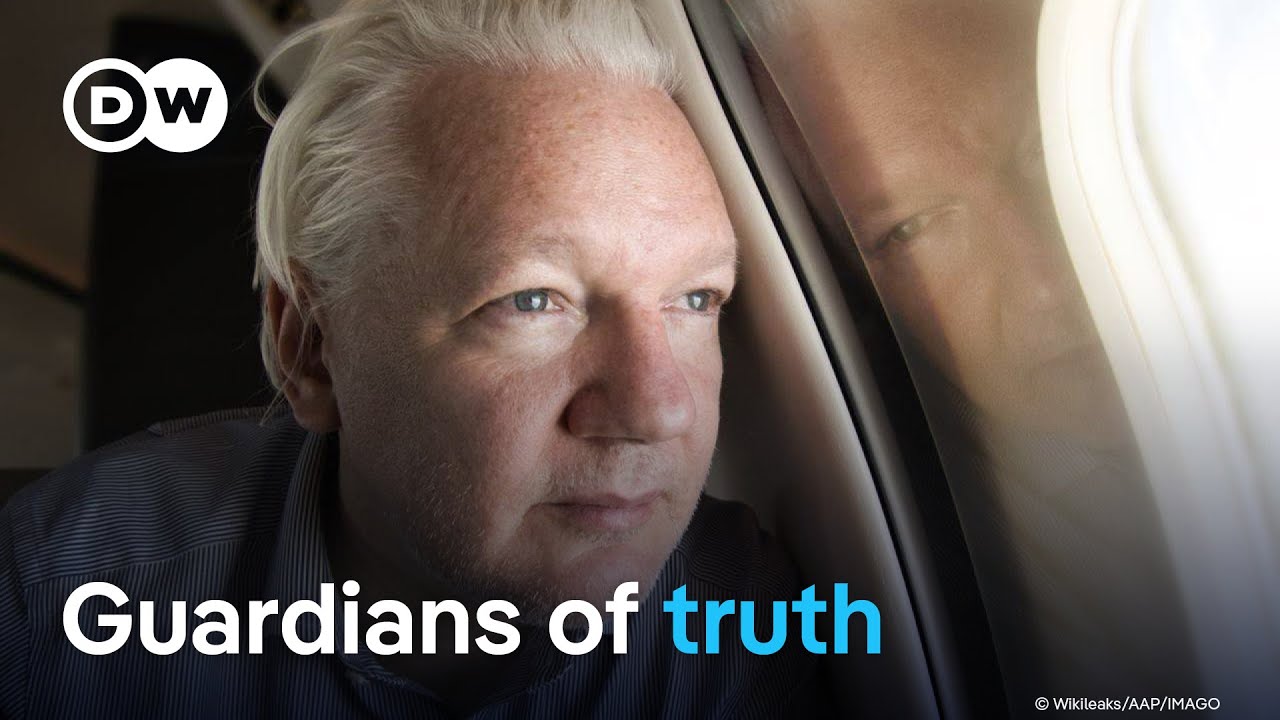On June 25, 2024, WikiLeaks founder Julian Assange was able to walk free following a deal with the US government. Does this surprising end to the publisher’s many years of criminal prosecution and imprisonment signal a positive outcome for press freedom? [embedded content] Turkish journalist Can Dündar, who was also imprisoned on similar charges in Turkey and now lives in exile in Germany, followed the Assange case for the last six months before his release. Dündar sees it as the most important trial for press freedom in this century. In this documentary, Dündar decides not to focus on the controversial figure of Assange, but instead on his most controversial publication: “Collateral Murder”, a video which shows possible war crimes committed by US soldiers in 2007 in an
Topics:
Bitcoin Schweiz News considers the following as important: Allgemein, Doku, Journalism, julian assange, war, Whistleblower
This could be interesting, too:
Bitcoin Schweiz News writes Die Ferengi Rules of Acquisition: Das Geschäftsmanifest des Star-Trek-Universums
Bitcoin Schweiz News writes Das ist die Digital Euro Association: Die Zukunft des digitalen Geldes
Bitcoin Schweiz News writes Kollaps im südafrikanischen Goldmarkt: Warum die Produktion und Verkäufe dramatisch einbrachen
Bitcoin Schweiz News writes Weltweit erstes Bitcoin-Meme-ICO übersteigt 3,6 Millionen US-Dollar

On June 25, 2024, WikiLeaks founder Julian Assange was able to walk free following a deal with the US government. Does this surprising end to the publisher’s many years of criminal prosecution and imprisonment signal a positive outcome for press freedom?
Turkish journalist Can Dündar, who was also imprisoned on similar charges in Turkey and now lives in exile in Germany, followed the Assange case for the last six months before his release. Dündar sees it as the most important trial for press freedom in this century. In this documentary, Dündar decides not to focus on the controversial figure of Assange, but instead on his most controversial publication: “Collateral Murder”, a video which shows possible war crimes committed by US soldiers in 2007 in an attack in Baghdad during the Iraq war. The recording shows journalists and Iraqi civilians being gunned down by US soldiers in an Apache helicopter.
Dündar’s investigations take him from Iceland to the US and Iraq, as he follows the story of the infamous video. He tracks down one of the only two Iraqi survivors of the attack – a boy who was 10 years old at the time – and a US soldier who was directly involved in the incident. Dündar invited the two to meet for the first time 17 years later. The encounter makes the disturbing long-term consequences of war and the lasting pain on both sides vividly apparent.
Following the publication of the video, the US military conducted an internal investigation, after which none of the soldiers were brought to trial. For Julian Assange, however, it was a different story: It was the first time in American history that publishing information the government considered secret was successfully treated as a crime.
Dündar was able to accompany Julian Assange’s wife, Stella, and their two children on one of their last visits to Belmarsh maximum security prison and to the hearings at Britain’s High Court. Although Assange is now free, Dündar asks what the ruling means for journalism. What will happen if journalists around the world stop reporting on war crimes, corruption or government wrongdoing for fear of conviction under an espionage law? The long-term implications of the Assange case are only just beginning to emerge. The film tells a gripping and highly topical story about the fight for truth.
